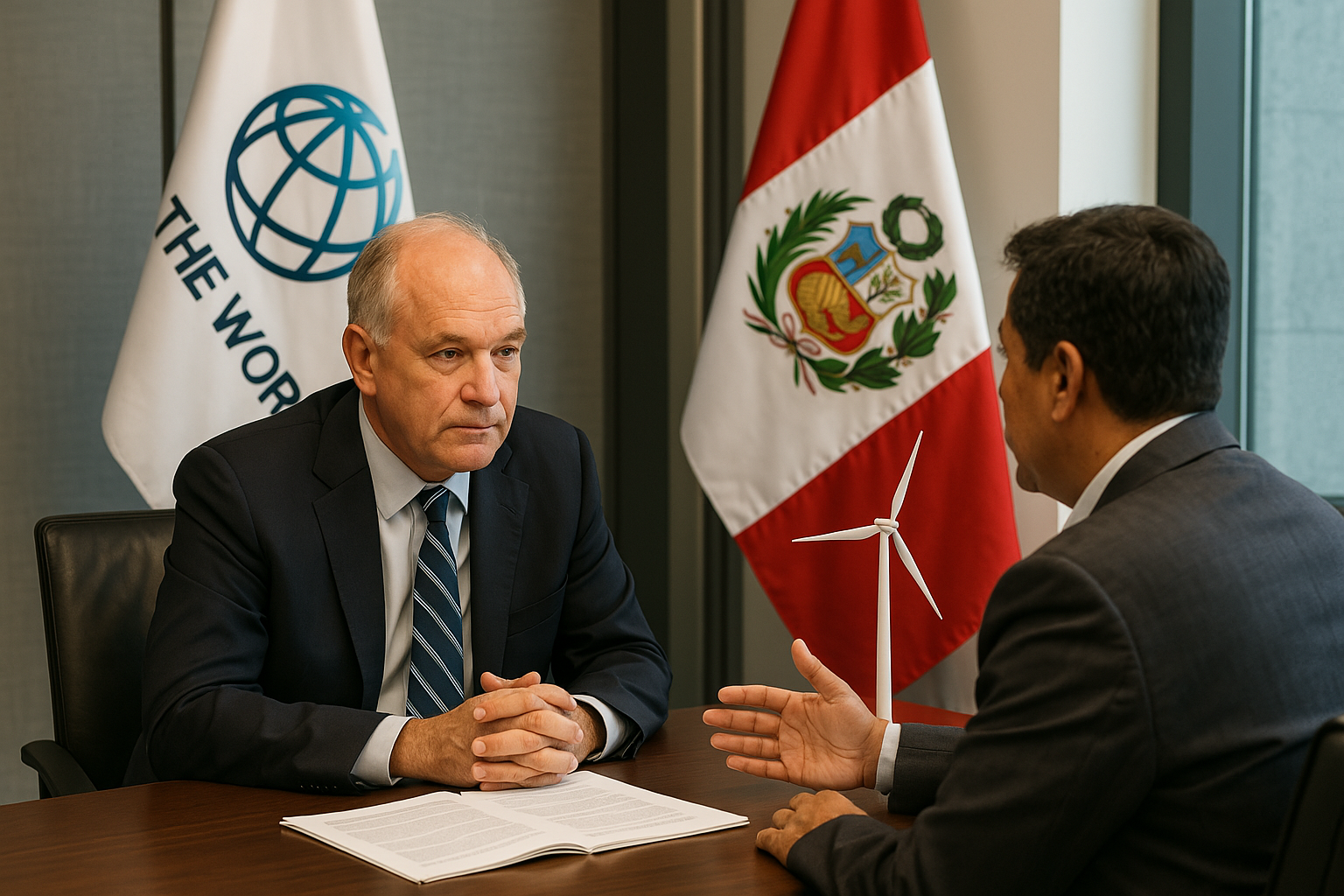World Bank Approves $500 Million Program to Boost Peru’s Climate Resilience
Peru, one of Latin America’s most climate-vulnerable countries, faces increasing threats from natural hazards such as floods, droughts, and earthquakes.

The World Bank Board of Executive Directors has officially approved a new $500 million program to help Peru strengthen its economic resilience and accelerate its transition toward a more sustainable and climate-resilient future. This transformative initiative is set to drive key policy and technological reforms while enhancing the country's ability to withstand and recover from natural disasters.
A Strategic Move Toward Resilience and Sustainability
Peru, one of Latin America’s most climate-vulnerable countries, faces increasing threats from natural hazards such as floods, droughts, and earthquakes. The newly approved program is designed to address this vulnerability by bolstering Peru’s disaster risk management systems, promoting cleaner technologies, and supporting low-carbon economic development.
“This program is a cornerstone in our support for Peru’s transition to a modern and resilient economy,” said Issam Abousleiman, World Bank Country Director for Bolivia, Chile, Ecuador, and Peru. “It will not only help mitigate the devastating impacts of natural disasters, but also stimulate job creation, attract private investment, and build new value chains in high-potential sectors.”
Key Focus Areas of the $500 Million Operation
The comprehensive program addresses several critical fronts:
-
Disaster Risk Management and Territorial Planning: Building on prior reforms, the initiative strengthens the National Disaster Risk Management System, improving risk identification, early warning systems, and community preparedness.
-
Renewable Energy and Technological Advancements: It promotes the expansion of renewable energy generation, including support for distributed energy sources, smart grids, and electromobility to transition the transportation sector toward low emissions.
-
Water Supply and Sanitation Infrastructure: The program supports climate-resilient water infrastructure, ensuring access to clean water and sanitation services—key components in protecting vulnerable populations from health and environmental hazards.
-
Forest Conservation and Amazon Protection: Recognizing the importance of the Amazon for both biodiversity and carbon sequestration, the program introduces initiatives to curb deforestation and improve forest governance, while promoting sustainable land use.
-
Electromobility and Urban Transport Modernization: By supporting electric mobility solutions and cleaner transport systems, the program helps reduce air pollution and greenhouse gas emissions in urban areas.
Supporting National Climate Goals and Unlocking Economic Potential
This initiative is aligned with Peru’s climate commitments under its updated Nationally Determined Contributions (NDCs), which outline ambitious mitigation and adaptation goals as part of the Paris Agreement. With a strong emphasis on innovation and sustainable development, the program is expected to catalyze private sector investment and boost the country’s global competitiveness.
“The technological shifts and green infrastructure promoted through this program are essential not just for meeting climate targets, but for unlocking new economic opportunities,” added Abousleiman. “They pave the way for more resilient communities, smarter cities, and a sustainable future for generations to come.”
A Path Forward for Peru
This operation signals a major step in Peru’s long-term strategy to address climate change and economic vulnerability. By investing in sustainability, risk reduction, and inclusive development, the country is positioning itself to better respond to environmental shocks while ensuring that its growth benefits all segments of the population.
The World Bank reaffirmed its commitment to standing with Peru throughout this transformative journey, working hand-in-hand with government institutions, local communities, and international partners to build a stronger, safer, and greener future.
- READ MORE ON:
- World Bank
- Peru
- Issam Abousleiman










